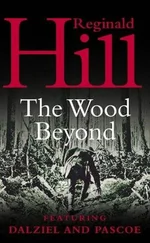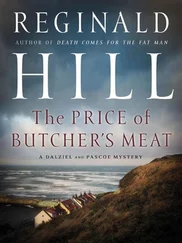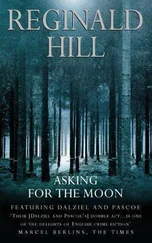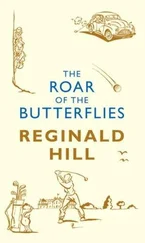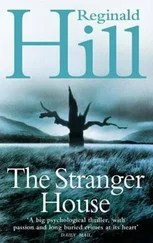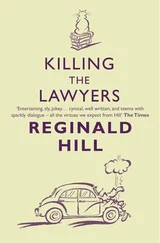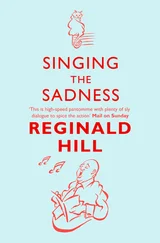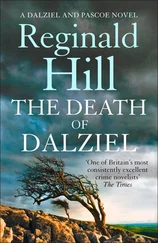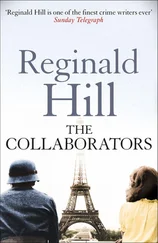Reginald Hill - Dialogues of the Dead
Здесь есть возможность читать онлайн «Reginald Hill - Dialogues of the Dead» — ознакомительный отрывок электронной книги совершенно бесплатно, а после прочтения отрывка купить полную версию. В некоторых случаях можно слушать аудио, скачать через торрент в формате fb2 и присутствует краткое содержание. Год выпуска: 2001, ISBN: 2001, Издательство: Doubleday Canada, Жанр: Полицейский детектив, на английском языке. Описание произведения, (предисловие) а так же отзывы посетителей доступны на портале библиотеки ЛибКат.
- Название:Dialogues of the Dead
- Автор:
- Издательство:Doubleday Canada
- Жанр:
- Год:2001
- ISBN:978-0-385-67261-0
- Рейтинг книги:5 / 5. Голосов: 1
-
Избранное:Добавить в избранное
- Отзывы:
-
Ваша оценка:
- 100
- 1
- 2
- 3
- 4
- 5
Dialogues of the Dead: краткое содержание, описание и аннотация
Предлагаем к чтению аннотацию, описание, краткое содержание или предисловие (зависит от того, что написал сам автор книги «Dialogues of the Dead»). Если вы не нашли необходимую информацию о книге — напишите в комментариях, мы постараемся отыскать её.
Dialogues of the Dead — читать онлайн ознакомительный отрывок
Ниже представлен текст книги, разбитый по страницам. Система сохранения места последней прочитанной страницы, позволяет с удобством читать онлайн бесплатно книгу «Dialogues of the Dead», без необходимости каждый раз заново искать на чём Вы остановились. Поставьте закладку, и сможете в любой момент перейти на страницу, на которой закончили чтение.
Интервал:
Закладка:
The other path, he guessed, might well have led him to some condition not unlike that of Johnson. They were, roughly speaking, of the same generation, but Sam looked younger, dressed younger, talked younger. On campus, the casual observer would probably find it hard to distinguish him from the students he taught. Yet he could take his place among his seniors at conferences or in the senate as a respected equal, even a potential superior, with a bright beginning behind him and the promise of glittering prizes ahead. At the very least he had the prospect of spending the years of his maturity in comfortable old rooms looking out on a smooth razed lawn running down to a river gay with punts in term time and serene with swans through the long vacations. …
OK, that was probably a pie-in-the-sky picture of academic life which didn’t exist or, if it did, had no appeal to Johnson. But in his own career, not even his most way-out fantasies could devise any comparable pastoral idyll.
Toil and trouble, trial and tribulation, till he was put out to grass, which was the only version of pastoral his future seemed to offer.
On the other hand, he didn’t have a drink problem, and his heart, so he’d been told on his annual medical check-up, was in perfect condition.
Johnson was looking at him as if expecting a response.
“Sorry,” said Pascoe. “Hard to hear with all this noise.”
Enunciating very clearly as if in a large lecture hall with a bad acoustic, Johnson said, “I was saying, we all make mistakes, Peter. Happily, most of us come to terms with them and get on with our lives.”
For a moment Pascoe felt like he’d been thought-read, then the lecturer went on, “And it can’t be pleasant for Franny, feeling he’s under constant observation.”
How about not being pleasant for me either? wondered Pascoe. But it was a blind alley of a conversation so he said lightly, “Depends on who’s doing the observing. I think one of us is being summoned.”
Ellie was beckoning. He gave a little wave and she replied by pointing her finger towards Johnson.
“You, I think,” said Pascoe.
He followed in Johnson’s wake. Charley Penn gave them both a nod and Ellie smiled a welcome and said, “Sam, do you know Percy Follows who runs the library service? And Mary Agnew, editor of the Gazette?” “Hi,” said Johnson.
“Percy was just telling me about this short story competition the library and the Gazette are running together. It seems they’re having a bit of bother with the judging.”
“Yes,” said Follows. “To be quite honest, I don’t think that Mary or myself realized the degree of interest there was going to be. My staff are doing the preliminary sorting and it’s turned into quite a task for us, I can tell you. We’ve had well over seven hundred entries, a very high standard, and we want to be sure that our winners really are la crème de la crème.”
“To cut a long story short,” said Ellie brutally, “Mary and Percy were looking for an expert panel. They naturally turned to Charley here as our most distinguished local lion who was kind enough to mention my own imminent elevation to the pride, then naturally your name came up.”
“Yes,” said Agnew. “This writing course of yours, seems to me that many of the entrants to the competition must be potential customers. You could almost look upon it as a recruitment campaign.”
Sam Johnson, if he’d had a quiz-glass, looked as if he’d have used it. Pascoe didn’t blame him. Ever since MYU’s creative writing course had been started, the Gazette had debated whether this was a sensible use of educational time, staff and money when the country was full of young people desperate for qualifications in subjects with some relevance to the real world.
It wasn’t hard to work out what had changed.
Agnew and Follows had initially taken the short story competition so unseriously that the librarian had wished the initial sorting out on Dick Dee, while Agnew had dumped the final judging into the lap of the Hon. Geoffrey Pyke-Strengler. Two things had happened. First, they’d probably been genuinely surprised by the number of entries. And secondly, after Jax Ripley’s final broadcast and subsequent death at the hands of the Wordman, the short story competition had entered the public consciousness in a big way. OK, it had little real connection with the investigation, but the national media, as always greedy for any crumb falling from such a richly set table, would be focusing in on the result. There’d already been a feature on Pyke-Strengler in one of the colour supplements. He was just the kind of anachronistic, sub-Wodehousian aristocrat the British love. His answers to his interviewer’s questions had been tinged with a vague bafflement at all the fuss, a quality which also informed his photographed face. One thing, though, had shone quite clearly through the vagueness-this was a man singularly unqualified to judge of literary merit.
So old pro Agnew was suddenly keen to have a judging team whose literary credentials wouldn’t make her paper look totally stupid. Charley Penn was an obvious choice. He’d passed the parcel to Ellie who in turn had involved Sam Johnson, who now said, “But surely you already have a judge in place: Mr. Pyke-Strengler. He’s here, isn’t he? I was admiring some of his wildlife watercolours earlier, painted I presume before he shot the creatures. Has he been consulted about the proposed changes?”
“If he hasn’t,” said Ellie, “now’s your chance. There he is talking to Mr. Dee. Perhaps they’re discussing the competition.”
Dick Dee and his companion were certainly deep in discussion of something and that’s how, or so it seemed to Pascoe, Agnew would have liked to leave them, but Ellie in mischief-making mood was not to be denied and she called loudly, “Hello! Mr. Pyke-Strengler! Do you have a moment?”
She winked at Johnson who grinned back. Then all gazes turned to watch the Honourable Geoffrey Pyke-Strengler come shambling towards them.
In the Great Outdoors, remote from human habitation, on mountain, moor or riverbank, the Hon. was by most accounts, certainly his own, a creature at one with the environment, soft of foot, sharp of ear and eye, endlessly ingenious in devising methods of getting close enough to the fur, fish and fowl he so loved to make easy the task of slaughtering them. He had been the kind of child who, if his parents had opted for the once popular upper class alternative to an expensive boarding school of staking him out on a cold mountain, would probably have dispatched the first wolf or bear that came marauding with his bare hands, then eaten it. In fact, as the supplement article had informed Pascoe, by the time he was ten his parents had abandoned him even more completely than by exposure to the elements. His father, Baron Pyke-Strengler of the Stang, a famous defender of animal rights in the Upper Chamber, had run off to Tahiti with an Australian anthropologist, as a consequence of which his deeply if idiosyncratically religious mother had entered a vegan cult’s Californian commune from which she had not emerged for twenty-five years, leaving the Hon. Geoffrey to grow up watching most of his inheritance steadily eroding under the very different but uniformly large financial demands of his absent parents. By the time he reached his majority, only the unassailable entail remained, consisting of the ancestral house (let as a corporate rest home), plus large chunks of Stangdale containing a few tumbledown farms.
Little wonder perhaps in view of his parents’ predilections that the Hon. Geoffrey should have declared war on the natural world, and in the Great Outdoors developed those predatory skills for which he was justly famed.
Читать дальшеИнтервал:
Закладка:
Похожие книги на «Dialogues of the Dead»
Представляем Вашему вниманию похожие книги на «Dialogues of the Dead» списком для выбора. Мы отобрали схожую по названию и смыслу литературу в надежде предоставить читателям больше вариантов отыскать новые, интересные, ещё непрочитанные произведения.
Обсуждение, отзывы о книге «Dialogues of the Dead» и просто собственные мнения читателей. Оставьте ваши комментарии, напишите, что Вы думаете о произведении, его смысле или главных героях. Укажите что конкретно понравилось, а что нет, и почему Вы так считаете.

